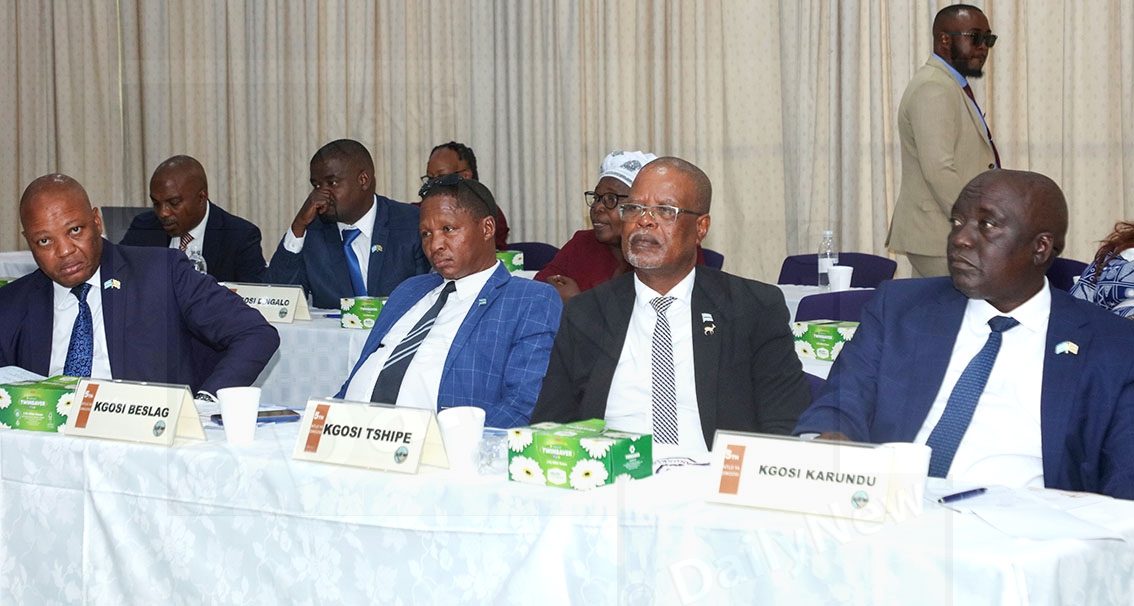Human-wildlife conflict a growing challenge
03 Feb 2025
The ongoing interaction between humans and wildlife in Botswana has evolved into a pressing issue with profound social, economic, and ecological consequences.
This was highlighted by Mr Moemi Batshabang, Acting Director of the Department of Wildlife and National Parks, during his recent briefing of Ntlo ya Dikgosi. Mr Batshabang said the impact of human-wildlife conflict had intensified over the years, exacerbated by the adverse effects of climate change.
He explained that the growing demand for land for agricultural purposes and the encroachment of human settlements into wildlife habitats had significantly contributed to the rising frequency and severity of these conflicts.
He said one of the major consequences was the loss of crops and livestock, which directly impacted food security and income for affected communities.
He noted that the losses, along with the injuries and fatalities suffered by community members, fostered resentment towards wildlife, sometimes resulting in retaliatory killings of animals.
“The financial cost of compensation for these conflicts is considerable,” Mr Batshabang remarked.
He shared that the government spent P28 million in 2021-2022, followed by P26 million in 2022-2023, and P25 million in 2023-2024. He said the slight decrease in the latter years was attributed to the drought conditions that impacted farming and reduced the number of incidents involving crop and livestock damage.
Mr Batshabang revealed that human casualties due to wildlife interactions were reported at an alarming rate. Over the past three years, eight fatalities were recorded each year, while the number of injuries increased, with eight recorded in 2022, 17 in 2023, and 14 in 2024, acknowledging that some incidents may had gone unreported.
Mr Batshabang urged farmers to refrain from taking matters into their own hands by killing animals deemed as nuisance. Instead, he advised reporting such incidents to the relevant authorities for safe capture and translocation.
He emphasised the importance of protecting endangered species like the wild dogs, cheetahs, and brown hyenas, as well as the partially protected lions and leopards. He added that government was committed to finding sustainable solutions to mitigate human-wildlife conflict while ensuring the protection of biodiversity in Botswana.
He stressed the need for greater collaboration between farmers, local communities, and the Department of Wildlife and National Parks to address the growing challenge.
“As the nation continues to grapple with the implications of climate change and human encroachment on wildlife areas, the dialogue on balancing development and conservation becomes ever more crucial,” he said. ENDS
Source : BOPA
Author : Lesedi Thatayamodimo
Location : Gaborone
Event : briefing
Date : 03 Feb 2025







